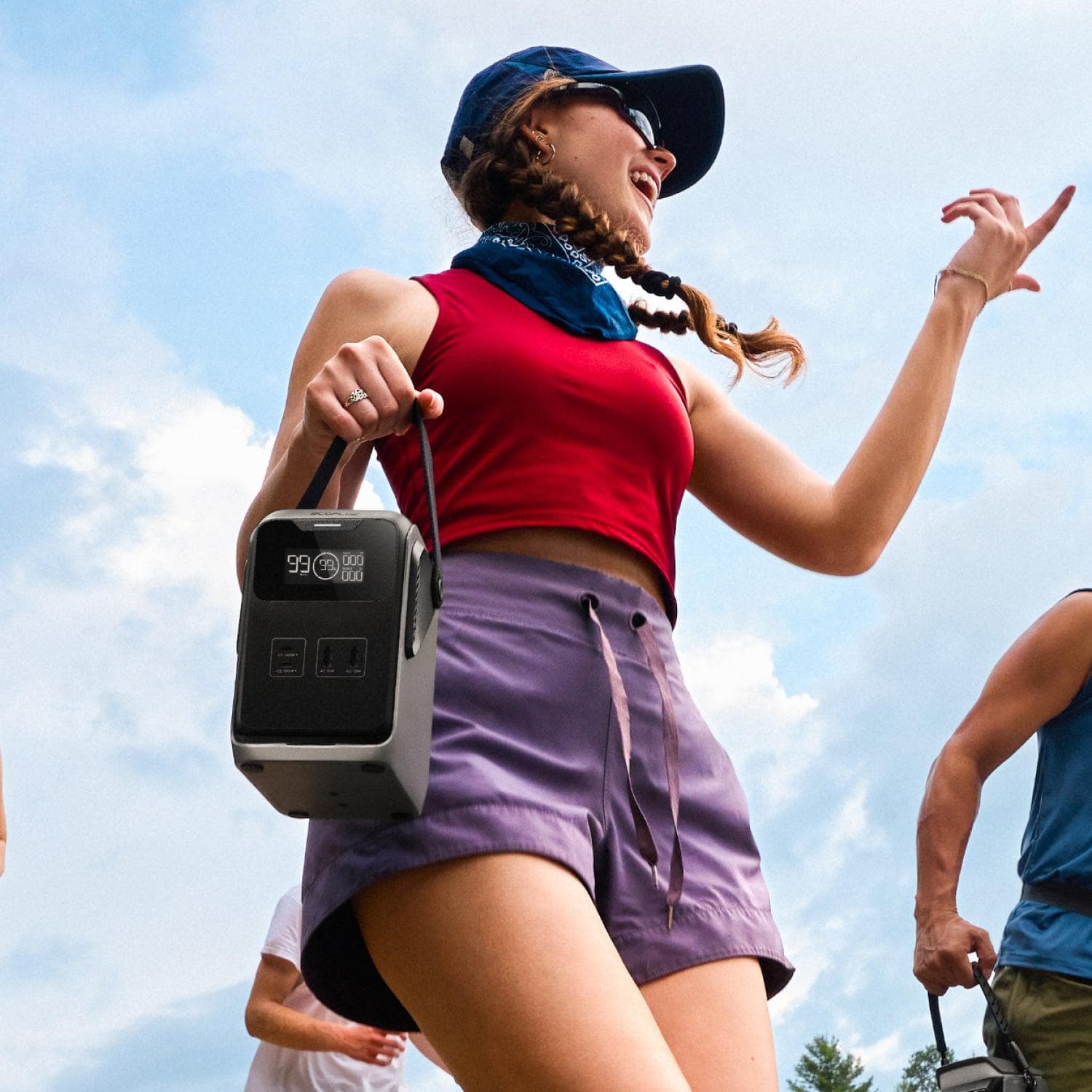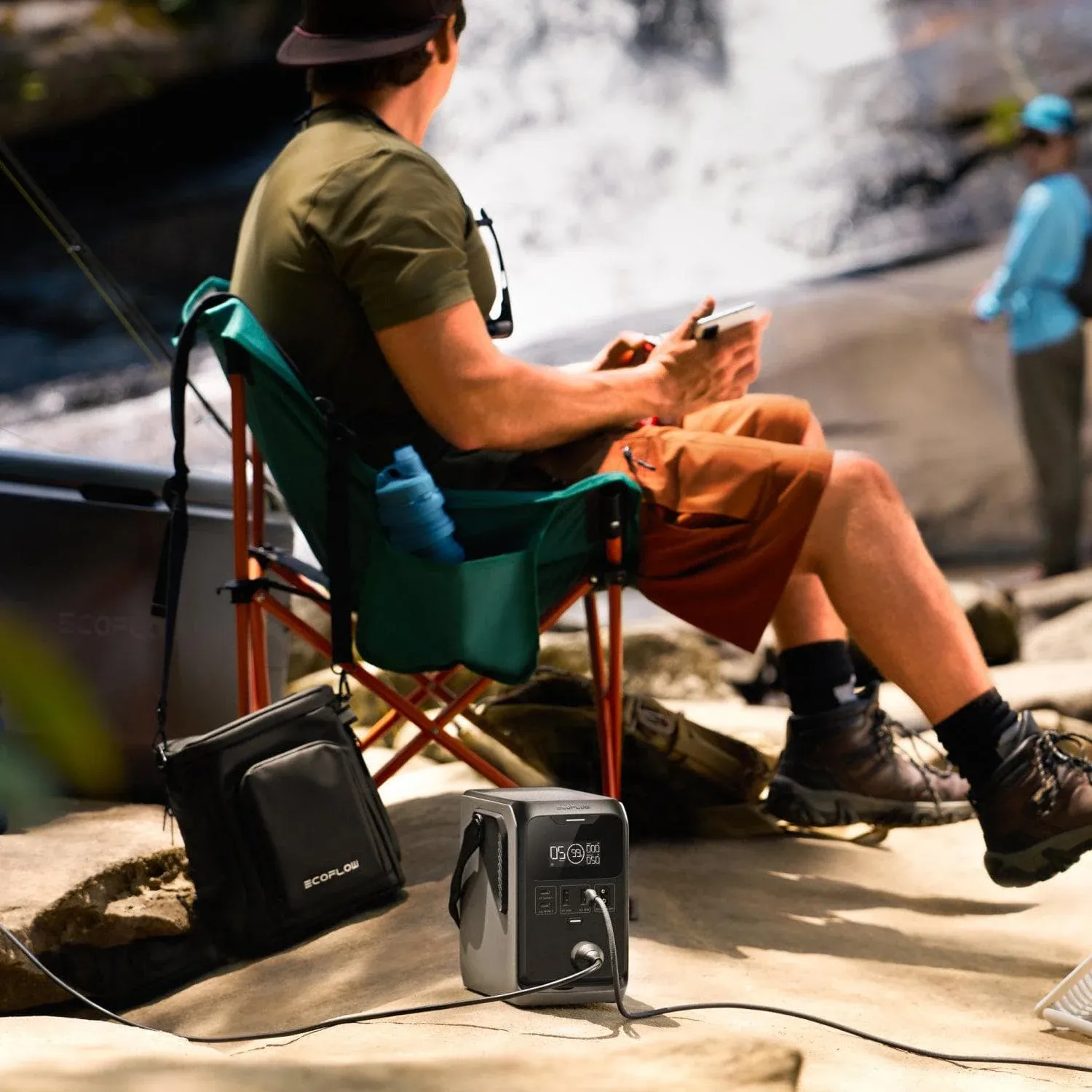Why This Debate Gets So Heated
You set up camp, start a fire, and settle in to enjoy the sounds of nature. Then your neighbor fires up their generator and the peaceful moment is gone. This happens at campgrounds all across America, and it gets people pretty worked up on both sides.
Why This Debate Gets So Heated
The Case for Bringing Generators Camping
They Don't Break the Bank
Let's talk money first. A decent portable generator for camping costs about $200 to $500. Compare that to a solar setup with batteries, which can run you $1,200 to $3,500. If you're watching your budget, a generator gives you power right away without emptying your wallet.
They Pack Serious Power
Small portable generators for camping can put out 2,000 to 4,000 watts. That's enough to run your phone charger, a small fridge, and camp lights all at the same time. You won't have to pick and choose what to power.
They're Easy to Figure Out
Most people get how generators work. You add gas, pull the cord, and boom - you have electricity. There's no need to learn about solar panel angles or worry about cloudy days messing up your power.
Why Many Campers Hate Them
The Noise Drives People Crazy
Generators make about as much noise as two people talking normally - around 50 to 65 decibels. In the quiet woods, though, that mechanical humming really stands out. Many campers say the noise stops them from hearing birds, wind in the trees, or water flowing nearby.
They Pollute the Great Outdoors
Gas generators pump out carbon monoxide and other nasty stuff right into clean air. They also burn fossil fuels, which bothers campers who want to leave nature as they found it.
They Start Arguments
Generators create real tension between different types of campers. People who want peace and quiet often get into it with RV folks who want their home comforts. Nobody likes those awkward confrontations.
When You Actually Need a Generator
Times When Generators Make Sense
Medical Equipment That Keeps You Alive
Some people need CPAP machines to breathe at night, or they have to keep medicine cold. For them, having reliable power isn't about comfort - it's about staying safe and healthy. Generators can literally save lives in these cases.
Long Trips in the Middle of Nowhere
When you're camping for weeks in places with no electrical hookups, generators give you backup power. Solar panels can't always keep up when it's cloudy for days or during winter when there's not much sunlight.
Big Family Gatherings
Large groups need serious power for cooking gear, lighting multiple areas, and charging everyone's phones and cameras. A generator can handle all that without breaking a sweat.


When Generators Are Just Overkill
Quick Weekend Trips
For camping trips that last just a few days, most gadgets can run on portable battery packs. Your phone, camera, and small devices don't need generator-level power for short getaways.
Campgrounds with Power Hookups
Many campgrounds let you plug right into their electrical system. Even places without hookups often have charging spots at the bathrooms or camp store.
Pretty Lights and Decorations
Running a generator just to power string lights or camp decorations wastes gas and bugs other people for no good reason.
Better Options That Won't Annoy Your Neighbors
Solar Power Systems Work Great Now
Modern solar setups have changed the game for outdoor power. These systems collect energy during the day through solar panels (those flat, dark panels you've probably seen) and store it in big batteries for later use. You can charge phones, run LED lights, and power small appliances without making any noise.
What This Means for You:
- No noise at all
- No gas to buy after you get the system
- No pollution
- Works in most weather
- Almost no upkeep needed
Battery Power Stations Hit the Sweet Spot
Battery-powered stations split the difference between generators and basic power banks. These boxes store lots of energy (200 to 2,000+ watt-hours, which means they can run your phone for days or power a small fridge for hours) and can keep your devices going for days without needing a recharge.
Here's What You Get:
- You won't bug your campsite neighbors
- You can camp where generators aren't allowed
- You'll save money on gas over time
- You'll feel better about not polluting


If You Must Use a Generator, Do It Right
Sometimes you really do need a portable generator for camping. When that happens, following some basic rules helps keep everyone happy.
When to Run It
Most campgrounds that allow generators let you use them from 8 AM to 8 PM. Some places are stricter and only allow 6 hours of use daily, usually from 10 AM to 4 PM. Always check the campground rules before you start up your generator.
Where to Put It
Set your generator at least 20 feet from your campsite and even further from other people's spots when you can. Point the exhaust away from other campers. Never run generators inside tents, RVs, or covered areas because the fumes can kill you.
Pick a Quieter One
Inverter generators (a type that makes cleaner electricity) run much quieter than regular models. They make about 50 to 60 decibels instead of 65 to 75 decibels. They cost more, but they don't disturb people as much.
Matching the Right Generator to Your Needs
For RV Owners Who Need Air Conditioning
Big RVs with air conditioning need generators that put out 3,000+ watts. Look for ones that start with the push of a button, use gas efficiently, and make less than 60 decibels of noise.
For Basic Camping Stuff
Small portable generators for camping (1,000 to 2,000 watts) handle the basics like phones, radios, and LED lights. Pick ones under 50 pounds so you can actually carry them.
For Emergency Backup
Tiny generators (under 1,000 watts) give you emergency power for medical devices or important communication gear. Focus on reliability and good gas mileage rather than maximum power.
What Modern Campers Are Choosing Instead
Today's campers have way more power choices than before. The EcoFlow TRAIL series shows where things are heading - super-light power stations that weigh just 4 to 6 pounds but deliver up to 300 watts of silent power. You can run 90% of your camping gear without any noise, pollution, or gas costs.
These new options prove that camping with a generator isn't always necessary anymore. Battery technology has gotten good enough that most camping power needs can be met quietly and cleanly.
Where Camping Power Is Headed
The outdoor gear industry is clearly moving toward quieter, cleaner power. Solar technology keeps getting better while prices drop. Batteries hold more power while getting lighter. Generator sales stay steady, but mainly for specific jobs that need lots of power.
Smart campers now pick the power solution that fits what they actually need instead of just buying a generator because that's what people used to do. Sometimes that's still a generator, but often it's a quieter, cleaner option that lets everyone enjoy the sounds of nature.
Finding What Works for You
Whether you need a portable generator for camping depends on your specific situation. Think about how much power you actually use, how long you'll be camping, how many people are in your group, and what the campground allows before you decide.
The point isn't to get rid of all modern conveniences when camping. It's about picking solutions that let you enjoy the outdoors while being considerate of other campers and the environment. With today's technology, you can stay powered up without drowning out the peace and quiet that makes camping special.
Ready to explore silent camping power solutions? Discover how EcoFlow's portable power stations can transform your outdoor adventures.
Camping
For press requests or interview opportunities, reach out to our media team
media.na@ecoflow.com